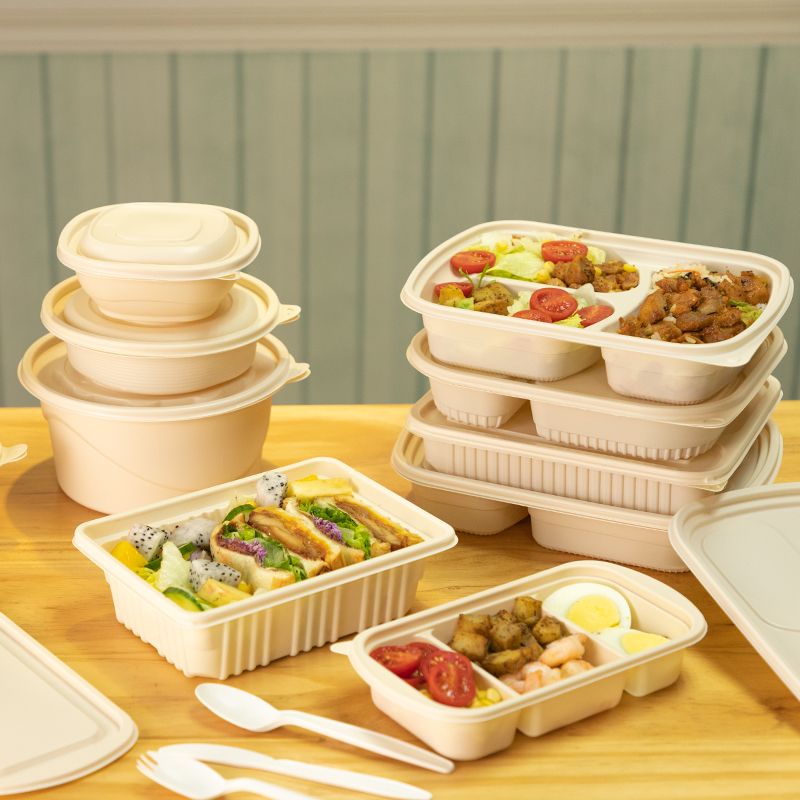In recent years, the environmental impact of plastic waste has become a pressing global concern. From oceans littered with plastic debris to landfills overflowing with non-biodegradable materials, the need for sustainable alternatives has never been more evident. Enter compostable takeaway packaging a promising solution that combines convenience with environmental responsibility. Compostable takeaway packaging is derived from natural materials such as cornstarch, sugarcane fiber, and cellulose, making it inherently biodegradable and environmentally friendly. Unlike traditional plastics, which can take hundreds of years to decompose, compostable packaging breaks down into organic matter when subjected to the right conditions. This means that instead of contributing to landfill waste or polluting our oceans, these materials can be returned to the earth through composting. One of the primary benefits of compostable packaging is its reduced environmental footprint. Manufacturing traditional plastics consumes significant amounts of fossil fuels and generates greenhouse gas emissions. In contrast, producing compostable packaging requires fewer non-renewable resources and can even sequester carbon dioxide when sourced from plants.
 This closed-loop approach supports a more sustainable cycle of production and consumption. Furthermore, compostable takeaway packaging supports local economies by promoting the use of renewable resources grown by farmers. For instance, cornstarch-based plastics utilize corn grown specifically for industrial purposes, providing farmers with additional revenue streams. This agricultural integration not only diversifies income sources but also encourages sustainable farming practices that benefit soil health and biodiversity. From a consumer perspective, compostable takeaway packaging offers a guilt-free dining experience. Knowing that your meal’s packaging will naturally decompose without harming the environment alleviates concerns about contributing to plastic pollution. Moreover, many compostable materials are designed to be microwave and freezer safe, ensuring convenience without compromising on functionality. In addition to its environmental and practical benefits, compostable packaging aligns with corporate social responsibility CSR initiatives. Businesses that adopt compostable packaging demonstrate their commitment to sustainability, which can enhance brand reputation and appeal to environmentally conscious consumers. Moreover, as governments worldwide implement stricter regulations on single-use plastics, investing in compostable alternatives positions businesses ahead of regulatory curves and future-proofs their operations.
This closed-loop approach supports a more sustainable cycle of production and consumption. Furthermore, compostable takeaway packaging supports local economies by promoting the use of renewable resources grown by farmers. For instance, cornstarch-based plastics utilize corn grown specifically for industrial purposes, providing farmers with additional revenue streams. This agricultural integration not only diversifies income sources but also encourages sustainable farming practices that benefit soil health and biodiversity. From a consumer perspective, compostable takeaway packaging offers a guilt-free dining experience. Knowing that your meal’s packaging will naturally decompose without harming the environment alleviates concerns about contributing to plastic pollution. Moreover, many compostable materials are designed to be microwave and freezer safe, ensuring convenience without compromising on functionality. In addition to its environmental and practical benefits, compostable packaging aligns with corporate social responsibility CSR initiatives. Businesses that adopt compostable packaging demonstrate their commitment to sustainability, which can enhance brand reputation and appeal to environmentally conscious consumers. Moreover, as governments worldwide implement stricter regulations on single-use plastics, investing in compostable alternatives positions businesses ahead of regulatory curves and future-proofs their operations.
Despite these advantages, challenges remain in the widespread adoption of compostable packaging. Consumer awareness and infrastructure for composting facilities vary widely across regions, affecting the accessibility and effectiveness of compostable packaging systems. Addressing these challenges requires collaboration among stakeholders, including governments, businesses, and consumers, to expand composting infrastructure and educate the public on the benefits of sustainable packaging choices. Looking forward, the future of compostable takeaway packaging appears promising. Innovations in material science continue to enhance the durability and performance of compostable materials, making them viable alternatives to conventional plastics in more applications. As consumer demand for eco-friendly products grows, businesses are increasingly incentivized to invest in sustainable solutions that reduce their environmental impact while meeting consumer expectations for quality and convenience. By embracing these materials, businesses and consumers alike can contribute to a healthier planet for future generations. As awareness spreads and technology advances, compostable packaging is poised to play a pivotal role in reshaping the way we approach food packaging and waste management globally.